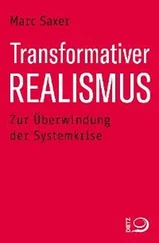Mark Fisher - Capitalist Realism - Is There No Alternative?
Здесь есть возможность читать онлайн «Mark Fisher - Capitalist Realism - Is There No Alternative?» весь текст электронной книги совершенно бесплатно (целиком полную версию без сокращений). В некоторых случаях можно слушать аудио, скачать через торрент в формате fb2 и присутствует краткое содержание. Жанр: Старинная литература, на английском языке. Описание произведения, (предисловие) а так же отзывы посетителей доступны на портале библиотеки ЛибКат.
- Название:Capitalist Realism: Is There No Alternative?
- Автор:
- Жанр:
- Год:неизвестен
- ISBN:нет данных
- Рейтинг книги:4 / 5. Голосов: 1
-
Избранное:Добавить в избранное
- Отзывы:
-
Ваша оценка:
- 80
- 1
- 2
- 3
- 4
- 5
Capitalist Realism: Is There No Alternative?: краткое содержание, описание и аннотация
Предлагаем к чтению аннотацию, описание, краткое содержание или предисловие (зависит от того, что написал сам автор книги «Capitalist Realism: Is There No Alternative?»). Если вы не нашли необходимую информацию о книге — напишите в комментариях, мы постараемся отыскать её.
Capitalist Realism: Is There No Alternative? — читать онлайн бесплатно полную книгу (весь текст) целиком
Ниже представлен текст книги, разбитый по страницам. Система сохранения места последней прочитанной страницы, позволяет с удобством читать онлайн бесплатно книгу «Capitalist Realism: Is There No Alternative?», без необходимости каждый раз заново искать на чём Вы остановились. Поставьте закладку, и сможете в любой момент перейти на страницу, на которой закончили чтение.
Интервал:
Закладка:
It would be a mistake to regard this market Stalinism as some deviation from the 'true spirit' of capitalism. On the contrary, it would be better to say that an essential dimension of Stalinism was inhibited by its association with a social project like socialism and can only emerge in a late capitalist culture in which images acquire an autonomous force. The way value is generated on the stock exchange depends of course less on what a company 'really does', and more on perceptions of, and beliefs about, its (future) performance. In capitalism, that is to say, all that is solid melts into PR, and late capitalism is defined at least as much by this ubiquitous tendency towards PR-production as it is by the imposition of market mechanisms.
Here, Zizek's elaboration of Lacan's concept of the 'big Other' is crucial. The big Other is the collective fiction, the symbolic structure, presupposed by any social field. The big Other can never be encountered in itself; instead, we only ever confront its stand-ins. These representatives are by no means always leaders. In the example of the White Sea Canal above, for instance, it wasn't Stalin himself who was the representative of the big Other so much as the Soviet and foreign writers who had to be persuaded of the glories of the project. One important dimension of the big Other is that it does not know everything. It is this constitutive ignorance of the big Other that allows public relations to function. Indeed, the big Other could be defined as the consumer of PR and propaganda, the virtual figure which is required to believe even when no individual can. To use one of Zizek's examples: who was it, for instance, who didn't know that Really Existing Socialism (RES) was shabby and corrupt? Not any of the people, who were all too aware of its shortcomings; nor any of the government administrators, who couldn't but know. No, it was the big Other who was the one deemed not to know -who wasn't allowed to know -the quotidian reality of RES. Yet the distinction between what the big Other knows, i.e. what is officially accepted, and what is widely known and experienced by actual individuals, is very far from being 'merely' emptily formal; it is the discrepancy between the two that allows 'ordinary' social reality to function. When the illusion that the big Other did not know can no longer be maintained, the incorporeal fabric holding the social system together disintegrates. This is why Khrushchev's speech in 1965, in which he 'admitted' the failings of the Soviet state, was so momentous. It is not as if anyone in the party was unaware of the atrocities and corruption carried out in its name, but Khrushchev's announcement made it impossible to believe any more that the big Other was ignorant of them.
So much for Really Existing Socialism -but what of Really Existing Capitalism? One way to understand the 'realism' of capitalist realism is in terms of the claim to have given up belief in the big Other. Postmodernism can be construed as the name for the complex of crises that the decline in the belief in the big Other has triggered, as Lyotard's famous formulation of the postmodern condition -'incredulity towards metanarratives' suggests. Jameson, of course, would argue that the 'incredulity towards metanarratives' is one expression of the 'cultural logic of late capitalism', a consequence of the switch into the post-Fordist mode of capital accumulation. Nick Land gives one of the most euphoric accounts of the 'postmodern meltdown of culture into the economy'. In Land's work, a cybernetically upgraded invisible hand is progressively eliminating centralized state power. Land's 90s texts synthesized cybernetics, complexity theory, cyberpunk fiction and neoliberalism to construct a vision of capital planetary artificial intelligence: a vast, supple, endlessly fissile system which renders human will obsolete. In his manifesto for nonlinear, decentered Capital, 'Meltdown', Land invokes a 'massively distributed matrix-networked tendency oriented to disabling ROM command-control programs sustaining all macro-and micro-governmental entities, globally concentrating themselves as the Human Security System'. This is capitalism as a shattering Real, in which (viral, digital) signals circulate on self-sustaining networks which bypass the Symbolic, and therefore do not require the big Other as guarantor. It is Deleuze and Guattari's Capital as 'Unnamable Thing', but without the forces of reterritorialization and anti-production which they argued were constitutive of capitalism. One of the problems of Land's position is also what is most interesting about it: precisely that it posits a 'pure' capitalism, a capitalism which is only inhibited and blocked by extrinsic, rather than internal, elements (according to Land's logic, these elements are atavisms that will eventually be consumed and metabolized by Capital). Yet capitalism cannot be 'purified' in this way; strip away the forces of anti-production and capitalism disappears with them. Similarly, there is no progressive tendency towards an 'unsheathing' of capitalism, no gradual unmasking of Capital as it 'really' is: rapacious, indifferent, inhuman. On the contrary, the essential role of the 'incorporeal transformations' effectuated by PR, branding and advertising in capitalism suggests that, in order to operate effectively, capitalism'S rapacity depends upon various forms of sheathing. Really Existing Capitalism is marked by the same division which characterized Really Existing Socialism, between, on the one hand, an official culture in which capitalist enterprises are presented as socially responsible and caring, and, on the other, a widespread awareness that companies are actually corrupt, ruthless, etc. In other words, capitalist postmodernity is not quite as incredulous as it would appear to be, as the jeweler Gerald Ratner famously found to his cost.
Ratner precisely tried to circumvent the Symbolic and 'tell it how it is', describing the inexpensive jewelry his shops sold as 'crap' in an after-dinner speech. But the consequence of Ratner making this judgment official were immediate, and serious -£500m was wiped off the value of the company and he lost his job. Customers might previously have known that the jewelry Ratners sold was poor quality, but the big Other didn't know; as soon as it did, Ratners collapsed.
Vernacular postmodernism has dealt with the 'crisis of symbolic efficiency' in a far less intense way than Nick Land, through metafictional anxieties about the function of the author, and in television programs or films which expose the mechanisms of their own productions and reflexively incorporate discussions of their own status as commodities. But postmodernism's supposed gestures of demystification do not evince sophistication so much as a certain naivety, a conviction that there were others, in the past, who really believed in the Symbolic. In fact, of course, 'symbolic efficiency' was achieved precisely by maintaining a clear distinction between a materialempirical causality, and another, incorporeal causality proper to the Symbolic. Zizek gives the example of a judge: 'I know very well that things are the way I see them, that this person is a corrupted weakling, but I nonetheless treat him respectfully, since he wears the insignia of a judge, so that when he speaks, it is the Law itself which speaks through him'. However, postmodernism's
cynical reduction to reality ... falls short: when a judge speaks, there is in a way more truth in his words (the words of the Institution of law) than in the direct reality of the person of judge ifone limits oneself to what one sees, one simply misses the point. Lacan aims at this paradox with his 'les non-dupes errent': those who do not allow themselves to be caught in the symbolic deception/fiction, who continue to believe their eyes, are the ones who err most. A cynic who 'believes only his eyes' misses the efficiency of the symbolic fiction, and how it structures our experience of reality.
Читать дальшеИнтервал:
Закладка:
Похожие книги на «Capitalist Realism: Is There No Alternative?»
Представляем Вашему вниманию похожие книги на «Capitalist Realism: Is There No Alternative?» списком для выбора. Мы отобрали схожую по названию и смыслу литературу в надежде предоставить читателям больше вариантов отыскать новые, интересные, ещё непрочитанные произведения.
Обсуждение, отзывы о книге «Capitalist Realism: Is There No Alternative?» и просто собственные мнения читателей. Оставьте ваши комментарии, напишите, что Вы думаете о произведении, его смысле или главных героях. Укажите что конкретно понравилось, а что нет, и почему Вы так считаете.












